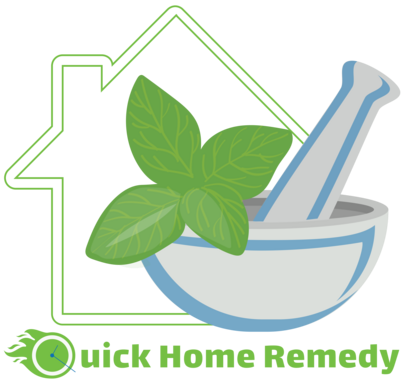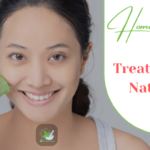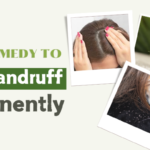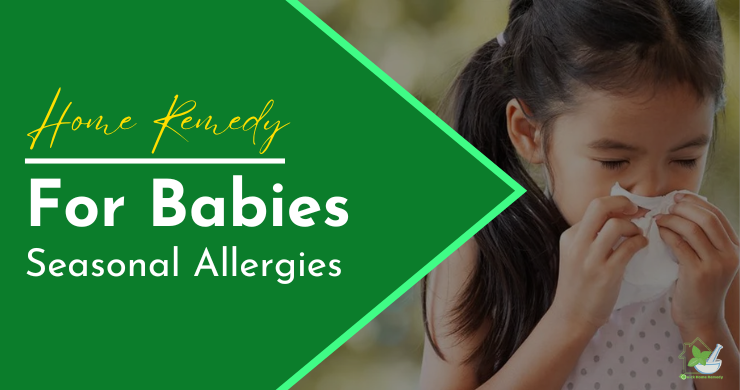
Babies can also have seasonal allergies like older children, teenagers, and adults because of the foods they eat, inhalation of unseen particles, and things they touch. If your baby has any symptoms like watery eyes, runny nose, hay fever, etc., then a reason can be seasonal allergies. It’s difficult to understand what is wrong with the baby. However, to help the baby, you need to know what to do if a baby has an allergic reaction.
We will discuss some common types of allergies in babies when to seek help, and what to do with seasonal allergies. What natural home remedies can help with seasonal allergies and what precautions must one take?
Types of allergies in babies:
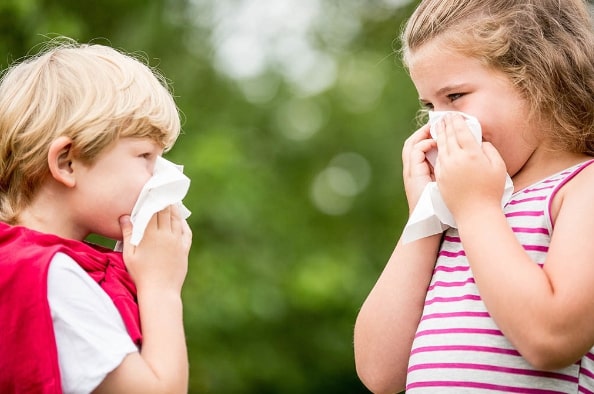
Allergies in babies can be categorised as seasonal, environmental, and food/medicine.
Food/medicine allergic reaction
Allergic reactions to food can be mild or severe. It can be life-threatening. Allergic reactions to food will usually happen after the food is consumed. It can be in minutes or a few hours. There can be some drug allergy signs like rashes, which will not appear for several days. Some common signs are itching, wheezing, rashes, hives, and shortness of breath. It can cause vomiting, abdominal pain, and nausea. The baby’s tongue may also swell sometimes.
Environmental allergies
Environmental allergies happen because of the things that babies touch. If the baby touches the detergents in clothes, and inhales particles like dust or other allergens, then it can affect the baby all year round. Anything in the environment can trigger it, which can affect the chest and head. The reason can be dust, pollen, insect stings, pets, or anything else in the environment. It can cause red and itchy eyes, runny nose, sneezing, wheezing, chest tightness, and coughing. The baby may also develop hives and itchy bumps when the skin is exposed to an allergen.
Seasonal allergies
The baby’s seasonal allergies can occur at various times during the year but it usually happens in spring when the pollen count is high.
What are seasonal allergies in babies? What are the symptoms?
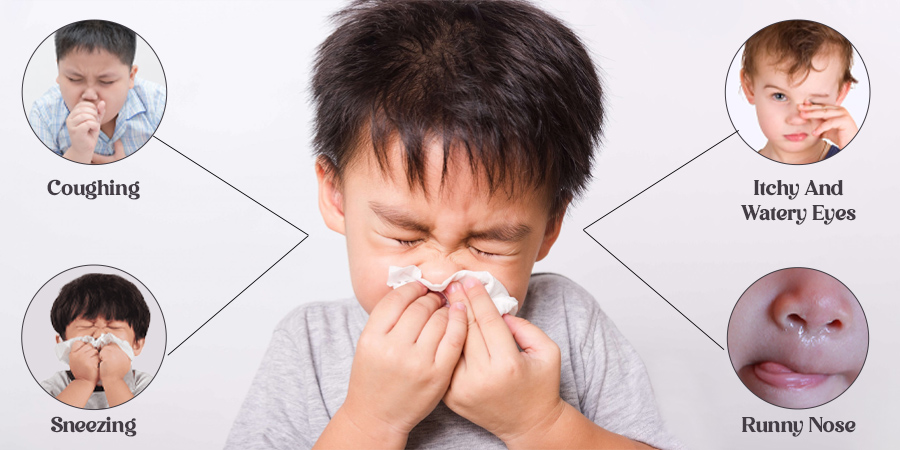
Seasonal allergies do not happen all year round but in certain parts of the year. It can happen because of the trees outdoors and other plants. Hay fever is a term used to describe these allergies. These are uncommon in babies but not impossible and the major symptoms are:
- Coughing
- Sneezing
- Itchy And Watery Eyes
- Runny Nose.
It is similar to environmental allergies and is caused by plant-based allergens. If the aforementioned symptoms appear at certain times of the year, then your baby is suffering from seasonal allergies.
When should you ask for help with allergies?
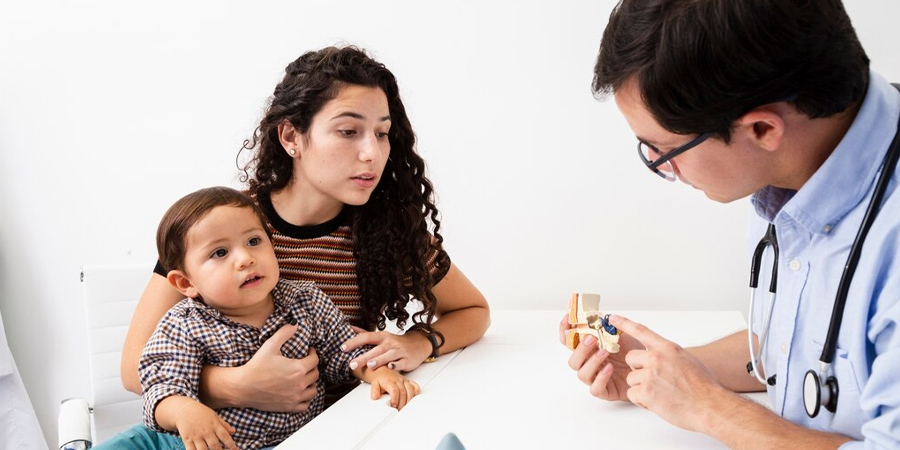
If there are some mild symptoms, then they will come and go. All you have to do is make a note of what happened and what is the cause of it. Did you give new food to your baby or did your baby go outside with you? Have you used some new detergent or a cleaning product that affected your child?
For mild symptoms, there is no need for a doctor’s visit but you must remember to mention it when you have the next appointment with your doctor. If the symptoms do not subside or worsen over time then you need to reach out to a medical practitioner immediately. Signs of anaphylaxis (a severe and sudden allergic reaction that needs to be treated quickly else it can turn deadly) need to be treated as a medical emergency.
Precautions:
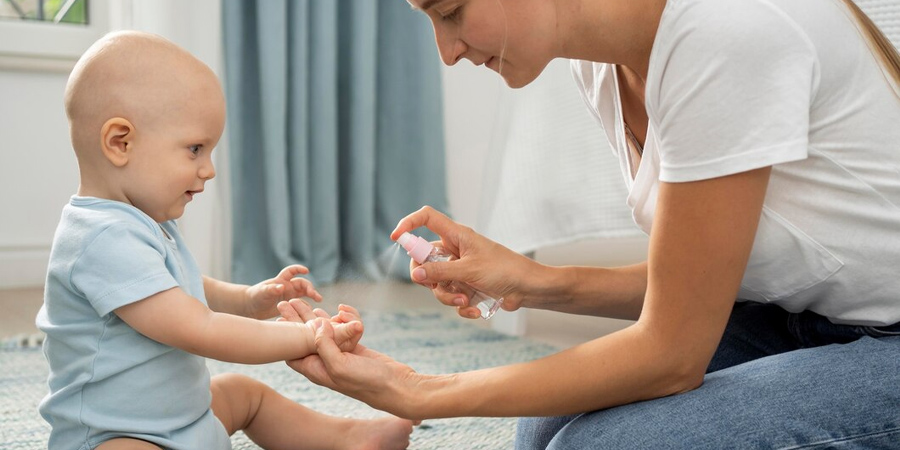
If the blood test shows that your baby has an allergy, then the doctor will prescribe the medicines, but there are some precautions that you must take apart from following the suggested medical plan.
Take measures so your child doesn’t come in contact with pollen. Avoid going out to the parks and gardens when the pollen season is at its peak. You can go out in the early morning or late evening, but do not go out with the baby when it is very windy. Wash your hands when you come from outside, and wash your baby’s hands too.
Use the air purifier at home and keep the windows and door closed so the baby is not exposed to pollen or allergens of any type. You need to limit the pet dander and pollen at home. So wash the bed sheets and pillows often. Wash the clothes of the baby in hot water in a mild detergent because pollen sticks to the clothes. Vacuum the floors properly and use the vacuum with HEPA filters to remove allergens.
Are there any natural remedies to treat seasonal allergies?

It is suggested not to follow any home remedy if your baby has a seasonal allergy. You must consult a paediatrician. For relieving symptoms like itchy eyes and sneezing, the allergy medication given by the doctor will work effectively. Take precautions seriously, for it will prevent the allergies from getting severe. The most common medications are eye drops to ease the itchy eyes, nasal sprays to help with stuffiness and sneezing, and medicines taken by mouth like antihistamines.
Though one can take these medicines over the counter, sometimes the dose has to be given differently, and consulting a doctor is necessary to understand this. You need to develop the immune system of the baby and for that, you can take the following measures:
- Breastfeeding: breast milk contains elements that develop the immune system in babies. It has probiotics, sugars, fats, and antibodies. Breast-fed babies get fewer infections and get better quickly.
- Vaccination: Vaccination helps babies to develop the immune system. It protects the babies against serious diseases. Pregnant women are vaccinated to pass the immunity to babies when they breastfeed their babies.
- Probiotics: Probiotics help in increasing immunity in babies, but you must ask your doctor before giving it to the baby. Once your baby eats solid food, you can give a variety of fresh fruits and vegetables to keep the immune system healthy.
Rashes and allergic reactions:
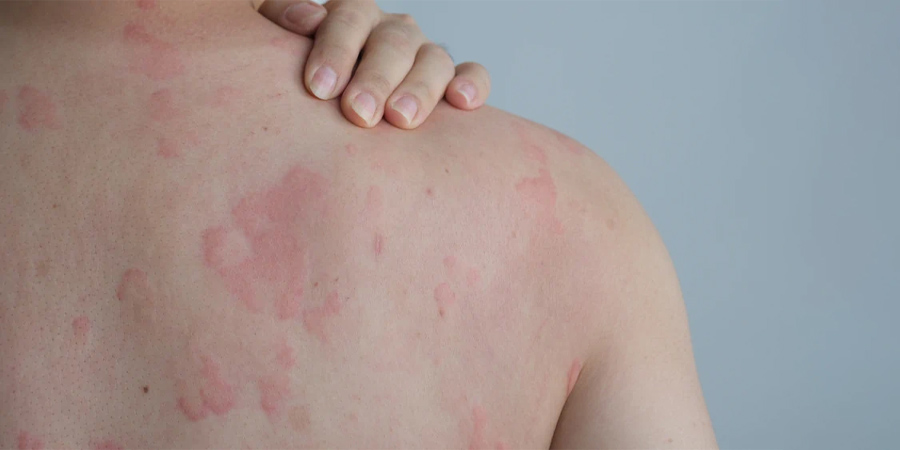
Some common child allergies can cause rashes in babies. Allergies cause various rashes like hives, eczema, etc. Hives may disappear in one place and appear in other places. The babies can experience hives at different amounts of time and acute hives may last a few hours to weeks whereas some may last over 6 weeks.
Eczema rash can be tiny red bumps which can be dry skin and scaly. Genetic and environmental factors can cause these rashes. The rash in babies because of allergic reactions needs to be treated else the baby can be uncomfortable.
For baby skin allergy home remedies, you can try:
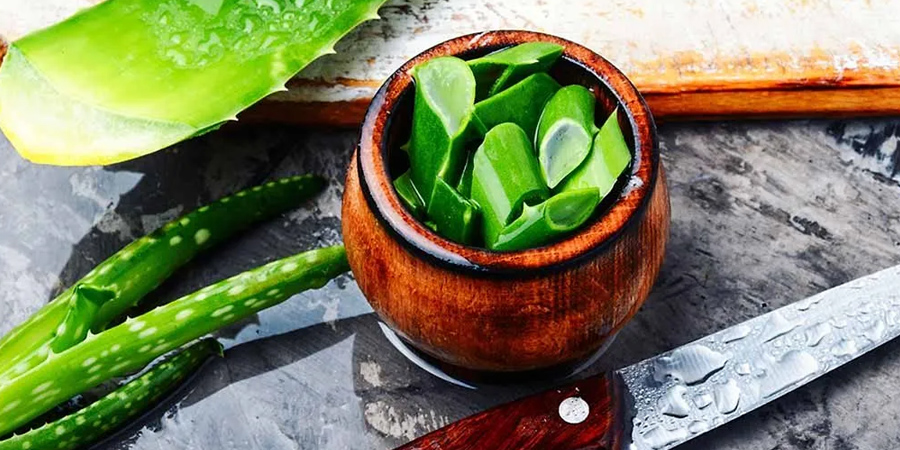
- Avoid triggers like detergents, soaps, and scented lotions because they can irritate the skin of the baby. Avoid chemical cleaners for clothes and the house as well.
- Bathe the baby with scent-free soap and do not rub the skin hard. This can irritate the skin of the baby. Apply the moisturiser after the bath to prevent dry skin. For rashes, use a rash cream prescribed by the doctor.
- If the rashes are because of dampness and wet clothes, then bathe the baby in warm water. Add some baking soda to the water as it will help in controlling the yeast infection. Let them babysit in the water for 15 minutes. Do not use soap in this case. After this, the pat dries the skin of the baby. Do not rub hard. Let the skin of the baby dry in natural air and then apply the rash cream before placing another nappy.
- If the baby has eczema or other allergic reactions, then make use of 1 percent hydrocortisone cream as it can treat skin infections, but speak with the doctor before using it.
Conclusion:
Babies are sensitive to various things and the first allergic reaction can be very scary for a parent. It happens because of the inappropriate response of the immune system, so you must take care of building the immune system of the baby. Now you know how to help a child with seasonal allergies. Always speak to your doctor about allergic reactions and take these simple precautions to keep your baby healthy. Seasonal allergies will come and go at certain times of the year but avoid contact with the baby with the pollen. Keep the indoor air quality of your house bacteria-free. Take other necessary precautions and keep consulting the doctor from time to time.
